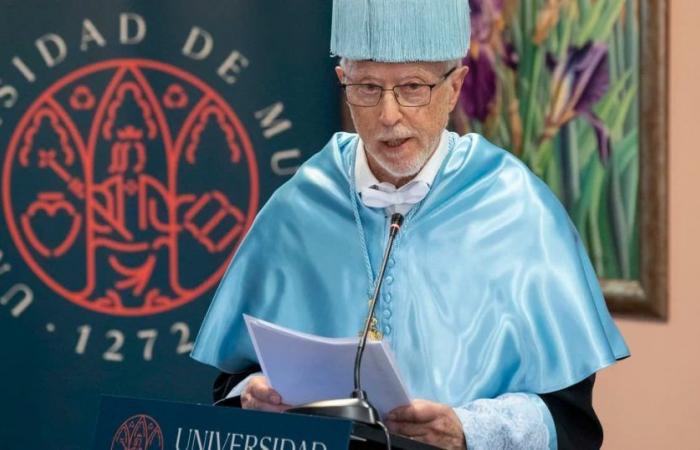
The South African writer John Maxwell Coetzee, winner of the Nobel Prize for Literature in 2003, said this Monday that, despite having created all his work in English, he feels “increasingly distanced” from that language and “from the culture it represents.” Coetzee, who this Monday received the title of Doctor Honoris Causa from the Spanish University of Murcia (southeast), reflected on the possibility that a book and its translation can be comparable, without distinguishing the original from the translated.
The University of Murcia, with this distinction, recognizes his brilliant career and his contribution to literature with a work that transcends the traditional limits of literary genres, as defended by his godfather at the ceremony, professor José Carlos Miralles Maldonadoprofessor of Classical Philology, and becomes the first Spanish university to grant him that distinction.
Coetzee (Cape Town, 1940) reflected on the role that languages play in the development of the person and highlighted how on the African continent “the language of education, business and government is, in general, a language inherited from a former colonizer, usually English or French”, which differs from the mother tongue. He himself experienced this reality in his own family, where Dutch and German were spoken at home, which were the mother tongues of his grandparents, and English was spoken “in the market.”
Although he masters that language, of which he has been a teacher and in which he has written all his literary work, he assured that he increasingly feels that his books “do not ‘belong’ to the English language or its culture,” nor do they, for For example, the translations that are made of them into French do not affect the French language or culture. “As I get older, I find myself increasingly distanced from English and the culture it represents,” he insisted, wondering if it is true that “all writing has to belong somewhere.”
To answer that question, the author of In the middle of nowhere, Misfortune either Elizabeth Costelloamong others, told how he did an experiment with the translator who usually translates his work into Spanish, Mariana Dimópuloswhen he published his short novel The Pole. Between them, they reviewed both the original and the translation to try to erase “all traces of specifically English thought, so that in the end we could not detect which was the original text and which was the translation.”
The experiment, he assured, “failed,” since the rest of the translations were made from the work in English and The Polelike the rest of his novels, was always considered originally written in that language, but Coetzee appreciated that, at a conceptual level, this experiment gave rise to reflecting on whether it is possible that the translation of a book can be better than the work. original.
Source: EFE





